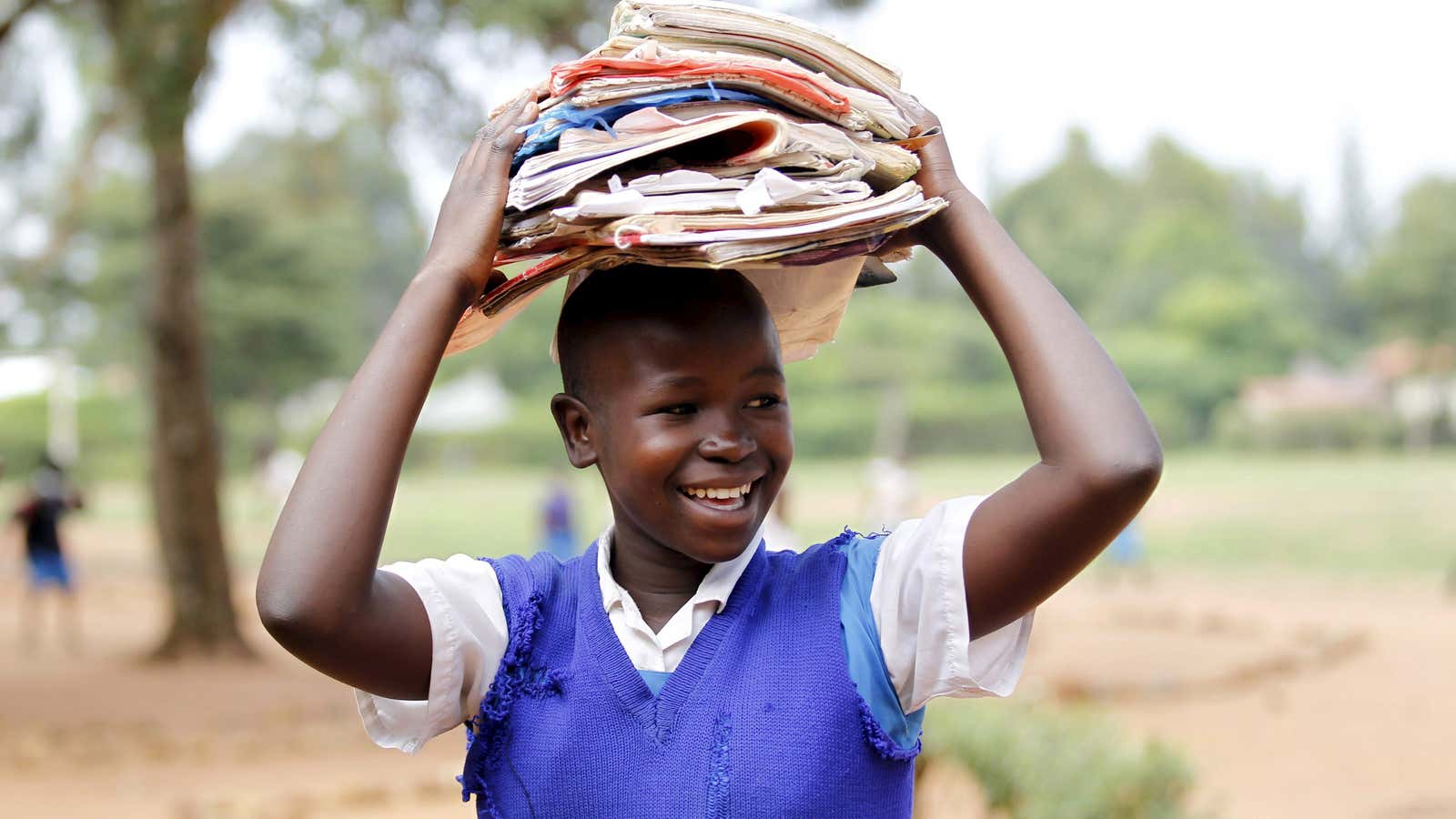Kenya’s president has promised to give all school girls free sanitary napkins. Less than two months before Kenyans go to the polls, president Uhuru Kenyatta signed the Basic Education Amendment Act which compels the government to provide “free, sufficient and quality sanitary towels to every girl child registered and enrolled in a public basic education institution.”
One in 10 girls on the continent misses school during her period, according the United Nations education agency. In Kenya, one of the biggest obstacles for girls attending schools is a lack of sanitary napkins, often too expensive for families to afford. Kenya’s ministry of education estimates that girls who stay home while they are menstruating lose six weeks of schooling a year.
Since 2011, Kenya has allocated funds to giving out free sanitary napkins. The bill marks the first time that responsibility has been placed on the government.
Social scientists and educators have experimented with many ways to incentivize girls from low-income backgrounds in developing countries to stay in school including providing lunch, bicycles, and toilets.
While there has been considerable improvement in getting girls to enroll in primary schools, it’s proven harder to keep school attendance up in higher grades. In Uganda, 91% girls are enrolled in primary schools, but that figure falls to 22% for secondary schools.
An Oxford University study from last December, shows that giving school girls sanitary pads and lessons on puberty can boost secondary school attendance in girls in Africa:
Researchers have found in several developing countries there is a stigma attached to menstruation and that girls are seen as “dirty” while on their period—one of the main reasons they stay home from school at the time. It’s also often difficult for girls in rural areas to find sanitary pads; many rely on absorbent cloth, which can leak and stain school uniforms.
